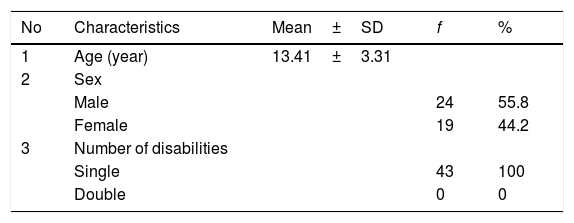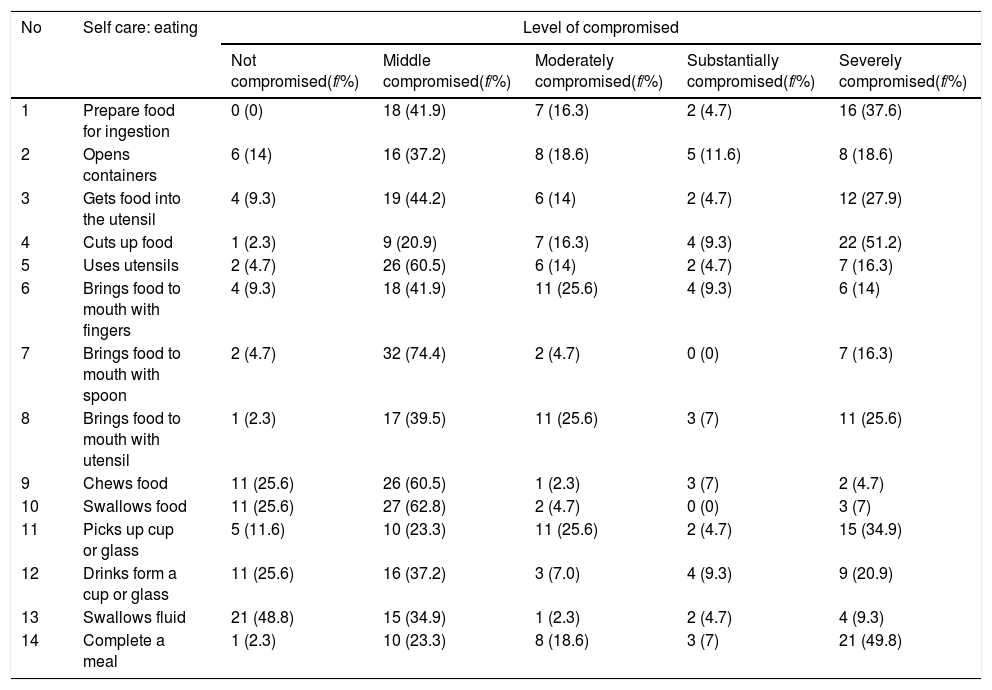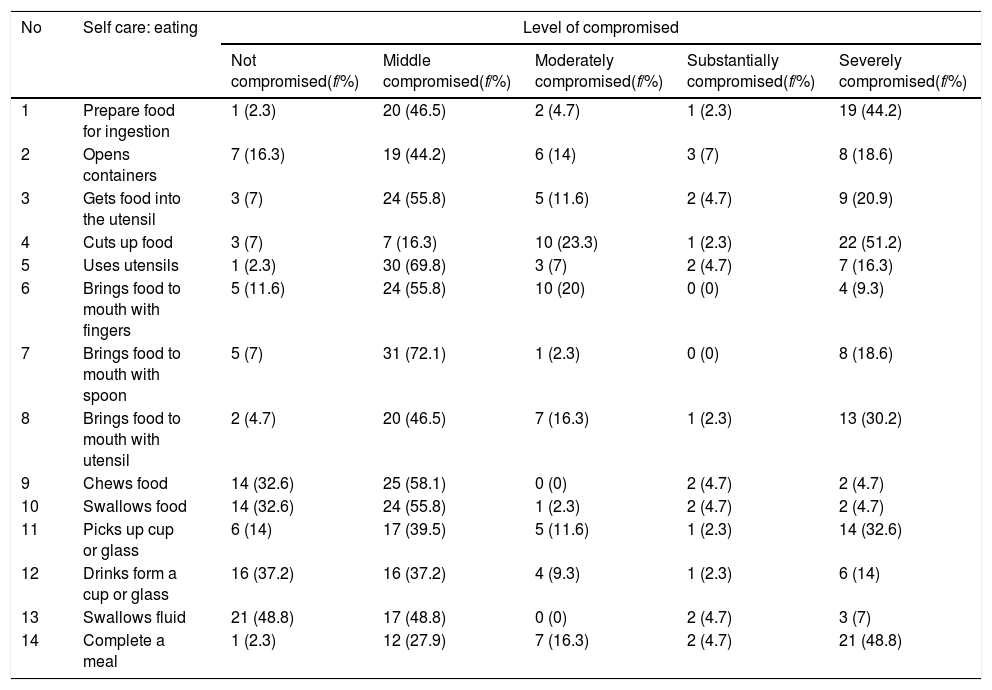
3rd International Joint Congress of Nursing Sciences (IJCNS) "Embracing the future of health services towards health for all"
Más datosThis study aims to determine the effects of using modified food utensils (curved forks and spoons with modified hand g and hand-gripped drinking cup) on the feeding skills of children with Cerebral Palsy (CP).
MethodsThis was a quasi-experimental research. Forty-three (43) children with cerebral palsy aged 6–18 served as the respondents of this study. The intervention was carried out by training the children with CP to use modified food utensils for one week. The modified food utensils were designed and produced by the researchers based on review of several previous studies. The modified forks, spoons, and drinking cup have a curvature handheld of 135° and a handgrip diameter of 2.5cm. The observation of the feeding skills was done twice. First observation was done while children were eating using usual spoons and forks and drinking using regular cup. The second assessment was done while the children were eating using the modified food utensils after the training. The check list of the feeding skills was made based on the indicators in the Nursing Outcome Classification (NOC): feeding. The paired t-test was used to determine the difference in the mean score between the feeding skills using regular forks, spoons as well as cup and using the modified food utensils.
ResultsSelf-care skills: The feeding skills were differed significantly before and after the children used the modified food utensils (44.25±13.97 vs 46.27±13.40; p=0.007).
ConclusionThere is a significant different in the feeding skills of CP children aged 8–18 between treatments in which children's feeding skills are better when using the modified eating utensil.
RecommendationFuture study should consider the use of modified hand grip shape and material for easier utilization.
Artículo
Comprando el artículo el PDF del mismo podrá ser descargado
Precio 19,34 €
Comprar ahora












